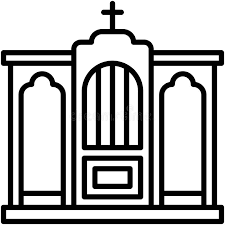
Todays Gospel: John 13:31-35
To love as Christ Loved
The 3 main characteristics of Christ’s love were:
1. Love is sacrificial
There was no limit to Jesus’ sacrifice because there was no limit to his love for us.If we follow Jesus model of sacrificial love, we will love one another sacrificially.
2. Love is unconditional
Jesus didn’t die for us because we deserved it. Jesus’ love was absolutely unconditional. So despite our weaknesses and failings, we are called to love others unconditionally too. We need to be gentle with each other. Society is becoming so harsh and judgemental; we immediately think the worse of others, we judge, we blame, we accuse. We need to follow in the footsteps of Jesus and treat others with the same gentleness, patience and kindness that God shows us.
3. Love is practical
Love is intensely practical. Think of the hospice nurse caring for the dying patient, the mother clearing up her child’s sick in the middle of the night, the parents who sacrifice their own dreams for the sake of their children. Its all about love, sacrificial, unconditional and practical…worked out in kindness, patience, gentleness and hospitality.
CONFESSIONS

I shall hear confessions after the six pm mass on Saturday evenings
Sin exists, as is evident at every level, from individual human relationships to international wars. We all sin and, therefore, we all need forgiveness. We are not yet the saints that we are called to become through our Baptism. To ignore the reality of sin in our lives, or minimise it, can limit our ability to be in relationship with God. Servant of God, Archbishop Martinez, who was from Mexico said:
“For all sin, grave or light, large or small, wounds God’s divine heart and, since we love him, naturally we should feel great sorrow for having offended him.”
